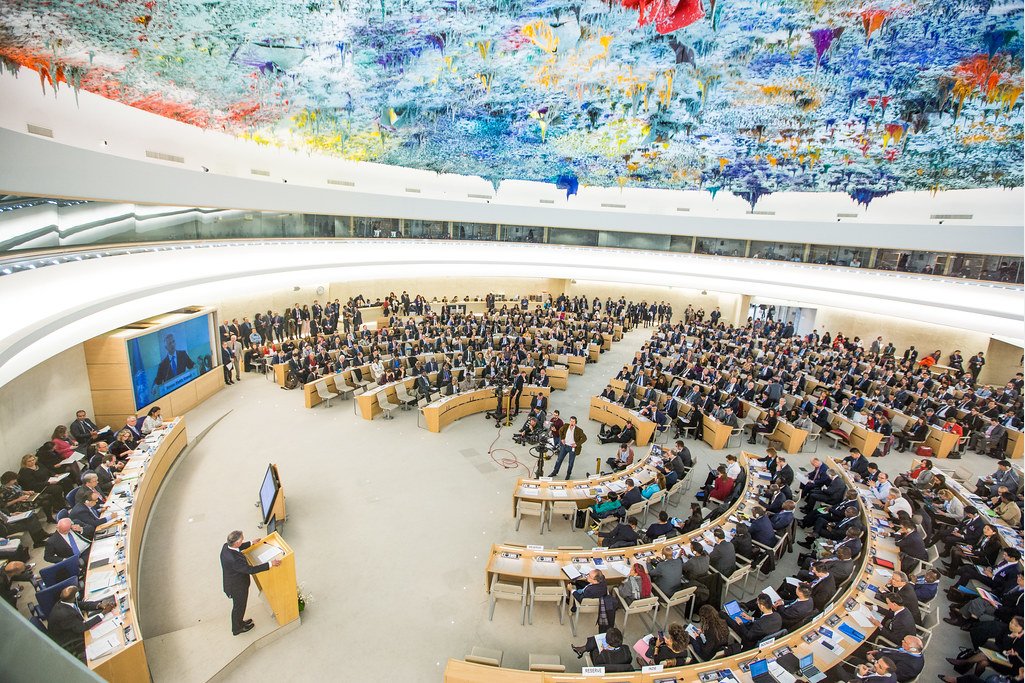Brazil is now becoming a major laboratory of the war of neoliberalism against democracy, a state crisis that is defeating the legislative power.
Rub salt in the wound
The section « Elsewhere on the web » proposes each month, one or two texts selected according to their interest in supplying the general debate on the situation and the alternatives from the perspective of social movements. A link to the first publication website will be posted on each article. This section is supplemented by texts proposed by partner sites, not exceeding one or two texts per site and per month.
Brazil is now becoming a major laboratory of the war of neoliberalism against democracy, a state crisis that is defeating the legislative power.
The situation seems to be desperate. The offensive of the right wing and the far right movements occupies space and minds. It spreads out in the media and claims to express the shift of societies to the right. This is not the case and nothing has been decided yet. Societies resist and contradictions are at work; they are the ones that determine the future.
From a strategic point of view, it is important to overcome the current hegemonic superiority of the financial system over the economic and military system. The urgency for the Left is to ward off the danger of decentralized and delocalizable third world war, which could take the form of war in three camps because of the emergence of the religious fact. It is also to make people aware of an internationalist solidarity based on international law and the defense of human rights.
The removal of Dilma Rousseff from the presidency of the First Brazilian Republic represents, for the vast majority of social movements and organizations of civil society in this country, a deep breach of the democratic regime in place since 1985: a real coup d’état, denounced tirelessly in (...)
The world’s economists have been wrestling with something they have found difficult to explain. Why is it that stock market prices have continued to go up despite the fact that something called growth seems to be stagnant? In mainstream economic theory, it’s not supposed to work that way. If (...)

The AITEC and Attac France obtained the release of the chapter ‘Energy and raw materials’, that will be offered to US negotiators at the 14th round of negotiations starting in Brussels today.
The text, commented in an analytical paper available here confirms our fears: TAFTA will deprive the (...)

In order to combat irregular migration, so called “Fortress Europe” has resorted to tighter border controls and increased militarisation of the Mediterranean Sea. Such measures do not result in reduced numbers of migrants reaching Europe but rather in higher taxes, a higher dependency on (...)

We are experiencing a period of considerable turmoil and great uncertainty. We are probably experiencing a change of epoque, during which old trends try to hold on rigidly, initiating new trends. Antonio Gramsci (the Italian Marxist theorist and politician)’s quote is pertinent: "The old world (...)

For the past few weeks, Brazil has been sinking into its most impressive political crisis of the last decades. Following allegations of corruption, the government witnesses its popularity drop to concerning levels. Politically biased judges, the press trying to bring down the government, (...)

The world today is faced with crises on virtually every front, and any assessment of the foreign policy positions of the two major parties’ 2016 presidential candidates must be measured against how well they respond to these crises.
BERNIE SANDERS
The Sanders campaign has been a breath of (...)

John Williamson passed away on 21 April 2021. He was the economist who neatly outlined and named the ‘Washington Consensus’, the policies the World Bank, the IMF, the US Federal Reserve Board and the US Treasury agreed to impose on debt-ridden countries of Latin America. At that moment, 1990, these ‘structural adjustment’ policies had already been applied for a decade with disastrous social consequences. Social expenditures were lowered almost everywhere, public services were privatised, labour markets were deregulated and millions of people lost their jobs. John Williamson emphasised that the Consensus did not cover any social policies.

Following the request of the Human Rights Council (HRC), the Office of the United Nations High Commissioner for Human Rights organised a workshop to discuss “practical ways to further enhance and strengthen” the work of this body “in promoting and protecting economic, social and cultural rights within the context of addressing inequalities”.

Nearly half a millennium ago Niccolo Machiavelli’s The Prince described three options for how a conquering power might treat states that it defeated in war but that “have been accustomed to live under their own laws and in freedom: … the first is to ruin them, the next is to reside there in (...)

In Brazil, fighting the spread of Covid-19 also means fighting President Jair Bolsonaro, who continues to deny the seriousness of the virus. In this context, Brazil’s vulnerable populations - including indigenous peoples - are even more affected.
